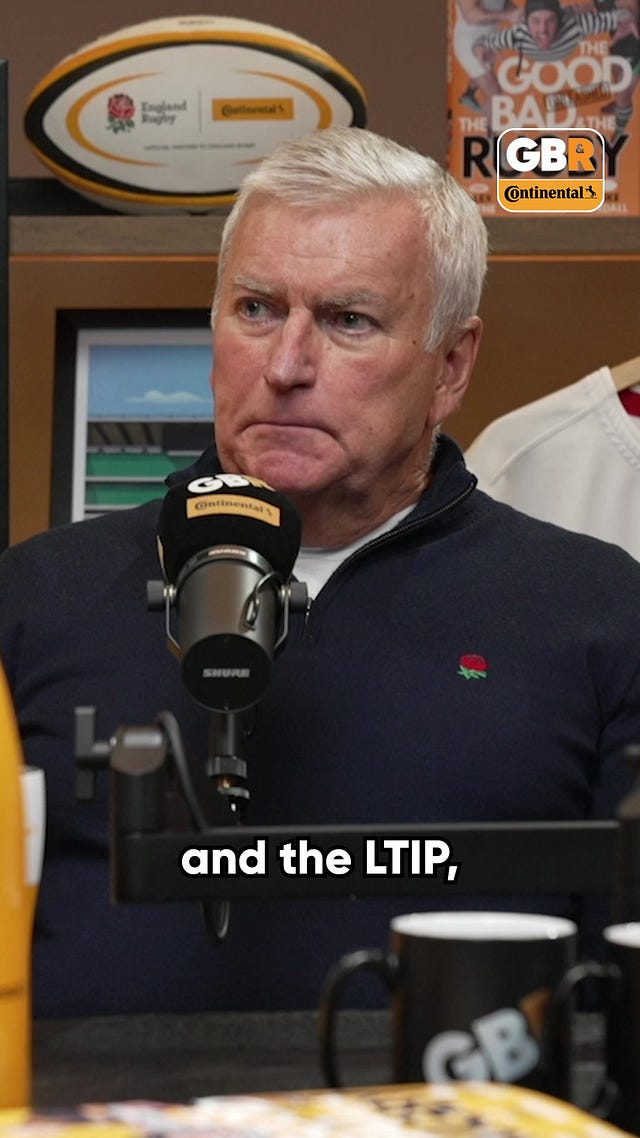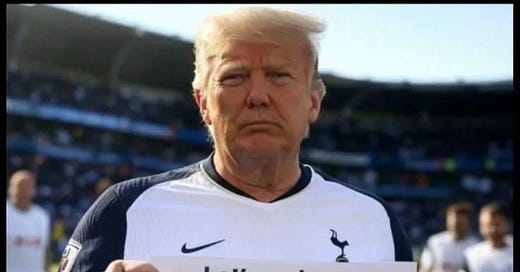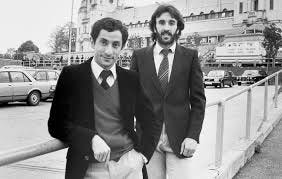Who's laughing now; Trump, FIFA and Mexico; TikTok economics; Celtic v Rangers in the WSL; Overclaim of the week; Dollar Bill Sweeney; Women, footy and the pub
Overthinking the sports business, for money
No laughing at the back
It’ll be fascinating to follow FIFA’s relationship with the Trump regime.
The 2026 FIFA World Cup is to be played in USA, Canada and Mexico. Two years ago this felt like an uncontroversial idea.
But there are two things we know for sure: The new President is a master at weaponising uncontroversial ideas and he is a deeply vengeful man, with a gossamer thin skin (that’s three things).
During the inauguration speech there was the bit where Trump reiterated his desire to rename the Gulf of Mexico.
Two people were caught laughing: Hillary Clinton and…Gianni Infantino.
Build: FIFA and the TikTok question.
How representative of American trade policy is the TikTok standoff? Trump said the US “should be entitled to get half of TikTok” and that without access to the American market the value of the app is zero. If ByteDance sells the app to one of his tech bro oligarchs, it could be worth ‘a trillion dollars’.
The American marketplace is now Trump’s asset to be leveraged: If your business sells to the US consumer, what’s in it for us?
Now switch back to football.
What’s the value of the FIFA World Cup and Club World Cup today?
What’s the value of those competitions if Trump decides to treat FIFA as it has TikTok?
Stretch the idea only a bit and there’s a chill that runs through every sports rights holder with ambitions of global expansion.
What are the implications for the Premier League and its member clubs? Athletics? Boxing?
The Olympics?
Rugby and cricket are talking up the States as the dream ticket…
How many sales decks contain a slide entitled ‘Exploiting the US market’ that work on the assumption of free entry in return for economic and social benefit to the host nation.
How robust are those claims now? What’s the cost line?
Trump has changed the equation.
Is The Economist on 10%?
A gushing review of TKO Group, putting some big numbers out in the public domain just as the UFC’s domestic TV deals come to market.
In 2023 Endeavor and WWE, a pantomime wrestling franchise now streaming on Netflix, combined their assets into a publicly traded company, TKO Group. Since then the UFC has earned its listed parent $1.3bn in revenue and $770m in gross operating profit and helped nearly double its market value to $24bn over the past year. Some 700m people in 170 countries are fans. They are young, mostly male, with a median age in America of 37, compared with 39 for the NBA (basketball), 41 for NASCAR (motor racing) and 46 for the NFL (American football). Nearly half are aged 18 to 34, the knock-out demographic group for advertisers. Analysts expect an almighty bidding brawl when the UFC’s broadcasting rights come up for renewal in the next few months. With no other big rights up for sale until 2028, these could fetch more than $1bn a year, double its current deal with Disney’s ESPN sports network.
Overclaim of the Week
It poses a good question though:
What is the biggest announcement in the history of the sports industry?
You’ll have your own choices.
I’m going with this:
Best day ever, including wedding and birth of child.
Dollar Bill
Good on Bill Sweeney for going on The Good, The Bad and The Rugby.
Plenty would’ve swerved it.
But I’ve a feeling he can’t survive the story about his bonus.
The expressions of Mike Tindall and James Haskell tell the story.
Awks etc.

 Tiktok failed to load.
Tiktok failed to load.Enable 3rd party cookies or use another browser
Executive pay is a trigger topic for the sports business.
It takes many of the threads of the industry conversation - sport as asset class, p/e, private v public funding etc - and puts them on the back page of the Daily Mail.
The basis of the C Sweet argument is that it reflects the market for talent: Pay peanuts, get monkeys etc.
But a million quid raises expectations as to what the job of NGB CEO actually is.
Is it the equivalent of a private sector CEO or a big charity?
Here’s something shared on WhatsApp before Christmas, note the poster’s pay related snark:
See this next clip. Simon Sinek is good on Milton Friedman’s crucial role in changing how capitalism works in favour of those at the very top of corporations (Friedman was recently called ‘a true genius’ by Elon Musk). This topic fuels the anger about unfairness across society, which is being exploited for political gain by, ironically, Trump and Musk.
A couple of asides:
The football regulator seems to suffer from the opposite problem to that experienced by Bill Sweeney: The pay on offer has been criticised for not being high enough to recruit the quality of person needed for such a role. I sense a dangerous mismatch between the reality of the job and the expectations of its remit and power.
This story from CityAM recently, highlights the same question at a lower price point:
The Department for Culture, Media and Sport (DCMS) posted an advert for the Head of Legal role earlier this week that will pay the successful candidate an annual salary of £75,000; roughly the same as the average starting salary at London law firms.
The remuneration for the post, which is understood to be the most senior legal role at the body, currently known as the Shadow Independent Football Regulator, could mean DCMS struggles to attract candidates of the calibre that top football clubs can call on, a high profile football lawyer warned.
Stefan Borson, a lawyer and football finance expert, told City A.M.: “The work setting up the football regulator will be crucial to it being an effective body from day one. Yet the budget offered for what seems to be a key professional role is less than most London-based newly qualified lawyers are paid and only about the average weekly basic wage of a Premier League player.
“Given that the Premier League’s legal bill for last season alone was reported to be approaching £30m, the football regulator will find itself toothless without access to proper resources commensurate with the scope of its remit.”
Meanwhile, Bill Sweeney’s pay is an easy hit for rugby writers.
Here’s Stephen Jones in the Sunday Times, lamenting a bygone age, when former RFU CEO Dudley Wood gave newspaper journalists lunch and made them feel relevant.
It’s 2035, you’re watching Celtic v Rangers in the WSL
Expected Goals continues to lead the women’s football business conversation.
Great episode this week.

 Tiktok failed to load.
Tiktok failed to load.Enable 3rd party cookies or use another browser
The fans who sit in plain sight
Loved this by Lona Price Jones, and her Linkedin post here.
Sport and the pub has long gone hand-in-hand. As women’s sport grows how can pubs and organisations engage with the fans who sit in plain sight?
Can sport exist without the pub?
Yes, it can. But they’re better together, as highlighted by Unofficial Partner podcast guest Professor Wray Vamplew who featured in Last orders: Sport, booze and the future of the pub .
A rather sobering stat (no pun intended), in the first quarter of 2024 pub closures increased by 51%. With 24% of sports fans attending the pub less than they were a year ago.
Throughout the podcast and in research, pubs and sport viewership is viewed through the male sport lens.
Men’s football, rugby, and high-profile fights in the UK drive sport viewership in pubs and have done for several decades. Attendance and the experience primarily shaped to fit male fan audiences.
This demonstrates a gap that exists and requires to be bridged between leagues, broadcast, pubs and women’s sport fans.
It begs the question and the growing challenge; how can pubs evolve and serve men’s and women’s sport fans amongst wider societal behaviour changes.












